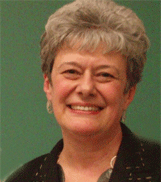![]()
labrys, études
féministes/ estudos feministas
janvier/juin 2010 -janeiro/junho 2010

Linda Hutcheon - interview
tns - Do you think that feminist theories – at least some of them – are succeeding to go beyond their initial proposals – on nature, motherhood, roles, equality – to represent / imagine new social roles, outside hierarchy and biological domination ?
LH. Feminisms, in their early days, had many battles to fight and they were immediate and demanded immediate attention for they were social, economic, biological, etc. With time, and victories (and even a few defeats), the situation is different, and I think feminist theories (wielded by artists as well as theorists) have indeed found ways to "imagine" and I think your word is important: to think anew, and to use the imagination to do so, everything from biological to social roles, and most importantly, to go beyond simply inverting or reversing the old male/female roles and to imagine new ones--for both sexes.
tns- Many times, you have mentioned feminisms, in your reflections on postmodernism. Don´t you think that the questions made by the feminist critique on the production of knowledge are, in fact, the basis of postmodern deconstruction ?
LH. I certainly think that the early provocations of feminism made the postmodern in many ways what it became--along with that parallel new self-consciousness about race and ethnicity (the US Civil Rights movement, etc.) at the time. The impulse to challenge marginalization, the concommitant drive to de-center power (at all levels), the desire for a more inclusive "both/and" kind of thinking to replace the patriarchal/modern "either/or"--these were all not only part of the Zeitgeist, but certainly provocations shared by many involved in feminist and race causes and that gradually formed the core of postmodern values.
tns - What do you think of the « gender » category and its generalized use, so many times made without any historical criticism ?
LH. Gender has become such a loaded term in sociological, anthropological and philosophical circles, not to mention in behavioural/biological ones. Because gender exists in most linguistic phenomena in the west, those who feel language is determinative would argue that we cannot ever escape its differentiating power, but there is no doubt that gender identity has been theorized by feminisms in such a way that it has great critical power, historically and today
tns- If history is unveiling today its own conditions of production and imagination, what do you think of a « history of the possible » looking into human relations, biased by the sexual differentiation process, in the construction of the historical discourse?
LH. Both history and historiography have, over the years, become domains of great self-reflexivity about issues of gender and how these can influence, as you say, their conditions of production. Sexual differentiation isn't something we are ever going to get rid of; it is the differentiations of value based on sexual difference that are either challenged or reinforced by our culture--and both are possible. Societies change over time, and they write the (hi)story of that change in different ways. How they value the roles and actions of men and women is one of the changing things that historiography has to narrate.
tns. The importance given to biological sex, « natural », is historical and can be detected in social discourses, scientific, religious etc. Do you think that feminisms succeeded spreading out this notion in the social area ?
LH. Feminisms have made us think not so much about the existence of biological sexual difference--it exists--but, as I said above, about the value a society gives to that difference--in social roles, in science, in religion, etc. And that re-valuing has made an immense difference in our western cultures, generally speaking.
tns.- Can you evaluate the impact of feminist poetics made on social practices, at least in our Western world ?
LH. Like many women, had I lived before the impact of feminisms, I would not have had a choice, a "voice", a chance to teach and research in my desired field, the opportunity to become a scholar and teacher. I feel that feminist poetics have played their role in the social shift that make this possible: it is all part of the same "paradigm shift" that was incredibly important for my generation of women--and those that came later. First you change the imagination, then you change society.
![]()
labrys, études
féministes/ estudos feministas
janvier/juin 2010 -janeiro/junho 2010